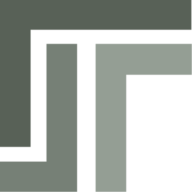SonarQube and code coverage
Getting Started
SonarQube is an open-source platform developed by SonarSource for continuous inspection of code quality to perform automatic reviews with static analysis of code to detect bugs and code smells.
Commands
Let’s take a quick look at the commands we’ll run to trigger the code analysis and get code coverage report.
Use CMD instead of bash to run the commands or see https://github.com/SonarSource/sonar-scanner-msbuild/issues/548#issuecomment-417004068
// let's initiate the SQ analysis
// ask your project lead/PM/BA to get the project-key and token
// with sonar.coverage.exclusions we exclude generic front-end related files from code-coverage
dotnet sonarscanner begin /k:<project-key> /d:sonar.host.url="http://sq.tsp.dev" /d:sonar.login="<token>" /d:sonar.coverageReportPaths="./coveragereport/SonarQube.xml" /d:"sonar.coverage.exclusions=**/*.js,**/*.ts,**/*.svelte,**/*.cshtml,**/*.cjs,**/wwwroot/**/*,**/node_modules/**/*"
// let's delete the coveragereport directory to remove codecoverage report generated in previous analysis
rmdir /s /q coveragereport
// SQ needs to analyze the compiled binaries and other generated files as part of the analysis
dotnet build
// run tests and gather code coverage information
// check coveragereport directory
dotnet test ./ --collect:"XPlat Code Coverage" --results-directory:coveragereport --no-build
// let's transform the previously collected information into something SQ understands
reportgenerator -reports:".**\coverage.*.xml" -targetdir:"coveragereport" -reporttypes:SonarQube
// let's end the analysis; in a couple of minutes, you should see the latest result in SQ web UI
dotnet sonarscanner end /d:sonar.login="<token>"
Installation
Install dotnet-sonarscanner and reportgenerator by running the following commands
dotnet tool install --global dotnet-sonarscanner
dotnet tool install --global dotnet-reportgenerator-globaltool
Ensure that you have Java JDK installed in your system. If it is not, you may download it here
https://www.oracle.com/java/technologies/downloads/
Getting Token
Go to My account page on Sonarqube and generate a token. Save it somewhere safe i.e. BitWarden
Running a scan
Go to the directory that contains the .sln file and run the following commands. Replace {projectName} with the name of your project in SonarQube. Replace {token} with the token generated from the previous steps.
Command to start scan (use cmd instead of git bash on windows):
dotnet sonarscanner begin /k:"{projectName}" /d:"sonar.host.url=http://sq.tsp.dev" /d:"sonar.login={token}"
Commands to build the solution :
dotnet build
Commands to finish the scan" :
dotnet sonarscanner end /d:"sonar.login={token}"
Excluding a project
Add the following in the .csproj
<PropertyGroup>
<SonarQubeExclude>true</SonarQubeExclude>
</PropertyGroup>
Including Code Coverage
update the dotnet sonarscanner begin command to include the codecoverage report
dotnet sonarscanner begin /k:"{projectName}" /d:"sonar.host.url=http://sq.tsp.dev" /d:"sonar.login={token}" /d:sonar.coverageReportPaths="./coveragereport/SonarQube.xml"
you may wonder what/where is the SonarQube.xml; we’ll generate that file using the below commands
Run the tests
dotnet test ./ --collect:"XPlat Code Coverage" --results-directory:coveragereport
Note: if your project is using a different coverage tool, the command will be different
Export the report, choose the report type as SonarQube
reportgenerator -reports:".**\coverage.*.xml" -targetdir:"coveragereport" -reporttypes:SonarQube"
Exclude the files for SonarQube code coverage, add the following in .csproj
<ItemGroup>
<SonarQubeSetting Include="sonar.coverage.exclusions">
<Value>{files you want to exclude}</Value>
</SonarQubeSetting>
</ItemGroup>
Things inside <Value> </Value> is the files/folders you want to exclude from coverage. Split files by “,”. Matching rule is:
*- Match zero or more characters
** - Match zero or more directories
? - Match a single character
can refer to this link for more information about matching
Excluding folders/files from test coverage; alternative approach
We can also specify our exclusions directly on the command
dotnet sonarscanner begin /k:"{projectName}" /d:"sonar.host.url=http://sq.tsp.dev" /d:"sonar.login={token}" /d:sonar.coverageReportPaths="./coveragereport/SonarQube.xml" /d:"sonar.exclusions=**/*.js,**/*.ts,**/*.svelte,**/*.cshtml,**/*.cjs,**/wwwroot/**/*,**/node_modules/**/*"
Excluding files/folders for SonarScan
Add the following in csproj, the following shows exclude scan for all files in folder Migrations
<ItemGroup>
<SonarQubeSetting Include="sonar.exclusions">
<Value>Migrations/*.*</Value>
</SonarQubeSetting>
</ItemGroup>
To exclude all the files in a project, you can do the following:
<ItemGroup>
<SonarQubeSetting Include="sonar.exclusions">
<Value>**,*.*</Value>
</SonarQubeSetting>
</ItemGroup>
- ** means all the folders under project, and . means all the files under the project.
- Things inside
<Value> </Value>is the files you want to exclude from coverage. Split files by “,”
 TSP Wiki
TSP Wiki